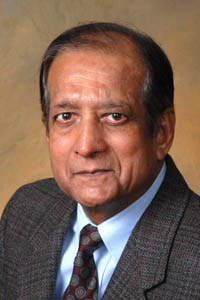

By Dr. Ghulam M. Haniff
St. Cloud, Minnesota
Democracy is a Plaything of the Feudal Elite
Democracy is unlikely to become established in Pakistan anytime soon. For any type of democratic order to become rooted in the body politic of the nation the fundamental requirement is for an altruistic leader to emerge at the helm of the state. Unfortunately, altruism is in short supply in the country where involvement in politics is a game for personal advancement, for rapid accumulation of wealth and for putting one’s own relatives in positions of power.
It is hard to believe that an individual, Mohammed Ali Jinnah, embodying numerous basic virtues sacrificed his life to achieve the country today called Pakistan. He exemplified the highest form of altruism possible in a society. No leader since his demise has shown even an inkling of similar behavior.
The succession of leaders who followed in the footsteps of Jinnah proved not only to be mediocre characters, motivated by opportunism, greed and self-interest, but were crooked and corrupt as well. The jury on Pervez Musharraf is still out though to considerable degree he has been straightforward as a man of vision and substantial foresight.
The growth of democracy in the Islamic Republic faces obstacles beyond any easy solution. There are many deep cultural, social and psychological impediments that cannot be surmounted except by the guiding hand of an altruistic leader. That is exactly what happened in the country next door, India, where Pundit Jawaharlal Nehru acted as a father figure leading a largely illiterate and poverty-stricken nation towards democracy.
Exactly similar experience had previously transpired when a new republic was being created in America. It was collectively guided by the Founding Fathers with George Washington playing a prominent role.
After Jinnah’s death the leadership in Pakistan gradually devolved into the hands of the landowning feudal elite and tribal chieftains. The peoples’ demand for democratic political order was partly met by holding elections. In these contests the competitors were all members of the feudal landowning class.
The type of democracy that eventually evolved in Pakistan became “elective feudalism” with feudal elite holding positions in the government and making up the opposition. The leaders of the major political parties, primarily the two largest ones, nominated their feudal friends to run for seats either in the national parliament and the legislative bodies in the provinces.
Of course, the highest elective office was reserved for the scions of the major feudal dynasties. During the last two decades it has included the twice elected and twice deposed Prime Ministers, Benazir Bhutto and Nawaz Sharif.
In Pakistani politics democracy is merely a slogan and is seen only as the holding of elections. Through clever sloganeering the illiterate masses are hoodwinked into casting their ballots in order to ratify the choice of one of the dynastic families. Thus, elections give legitimacy to the holders of power and become acceptable in the eyes of the international community. That is why the two prime candidates for the position of the Prime Minister were so vocal in their demand for elections. The notion of democracy that they articulated meant only the casting of votes in a popularity contest.
It had nothing to do with transparency in decision-making, accountability, or the rule of law or for that matter the respect for human rights. They hardly ever talked about creating jobs or improving the plight of the downtrodden masses. For the public the democracy that was practiced was one by the feudal lords, for the feudal lords and of the feudal lords.
As it has become instituted in many countries democracy is more than casting votes in an election. It is about building lasting institutions such as the rule of law with an independent judiciary, the creation of representative legislative body based on accountability and transparency, the safeguarding of the freedom of speech with a free press and the enforcement of equality for all. It is also about a vigorous civil society operating freely under the law.
When the new Prime Minister assumes power, more than likely Nawaz Sharif, he will spend the bulk of his time tinkering with the constitution. Issues designed to build democratic institutions, or strengthen the nation or improve the economic well being of the masses will be relegated to the back burner. That has been the modus operandi in Pakistani politics for quite some time.
The ultimate aim of the feudal landowners is to keep power in their hands and to maintain the vassalage of the citizens in the name of democracy. Since they own land in the countryside and live in the cities “playing politics” is a favorite pastime and a lucrative one.
|
PREVIOUSLY
Pakistanis Want New Faces and Good Governance
No Quick-Fix for Pakistan |

